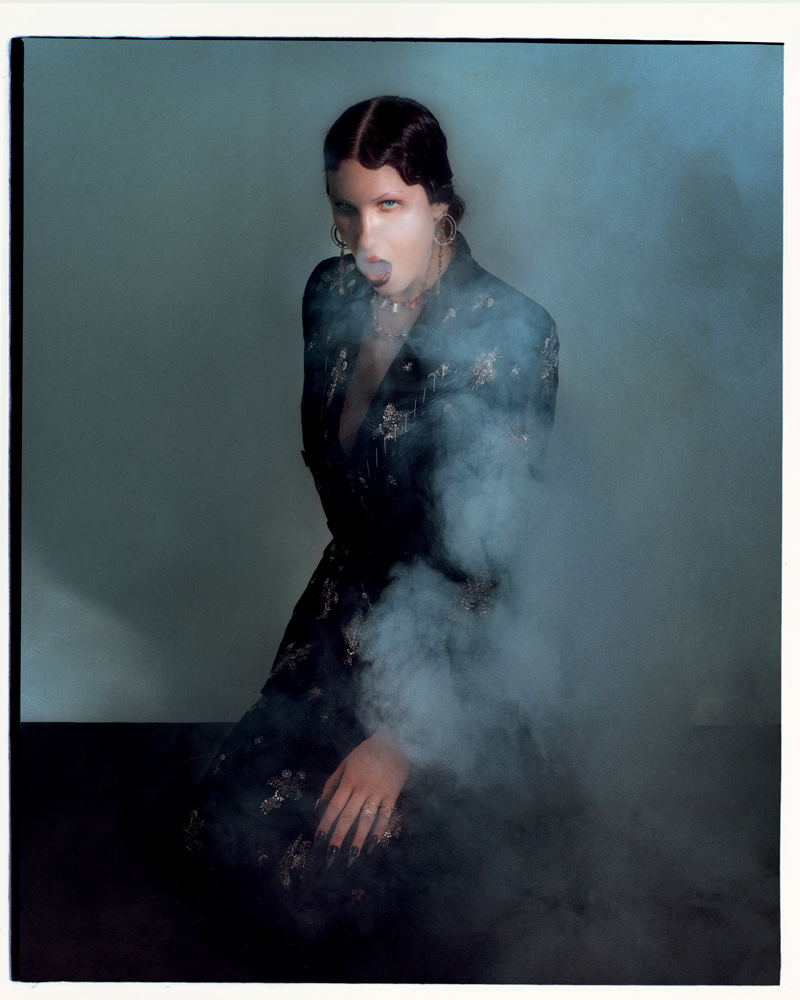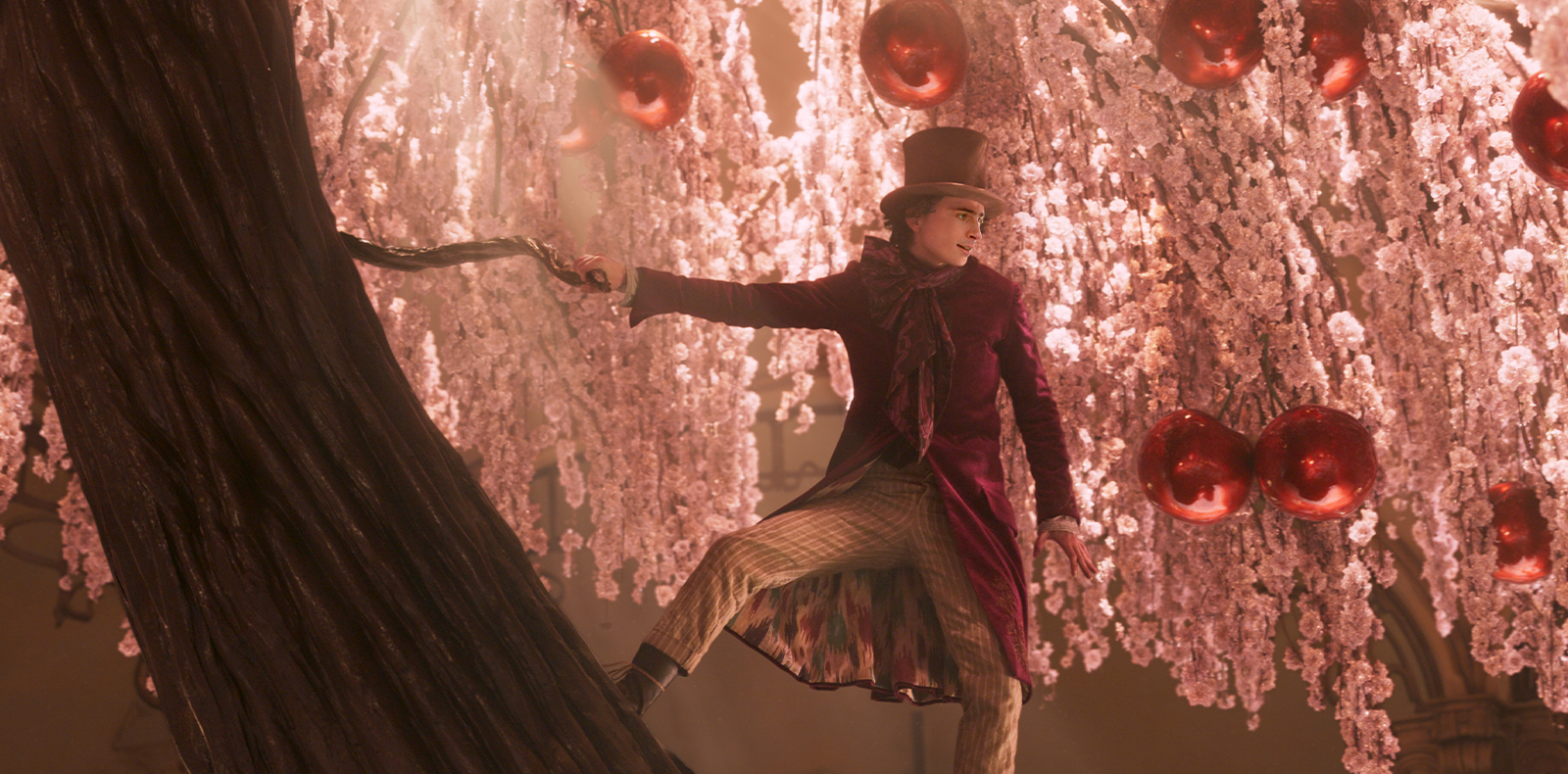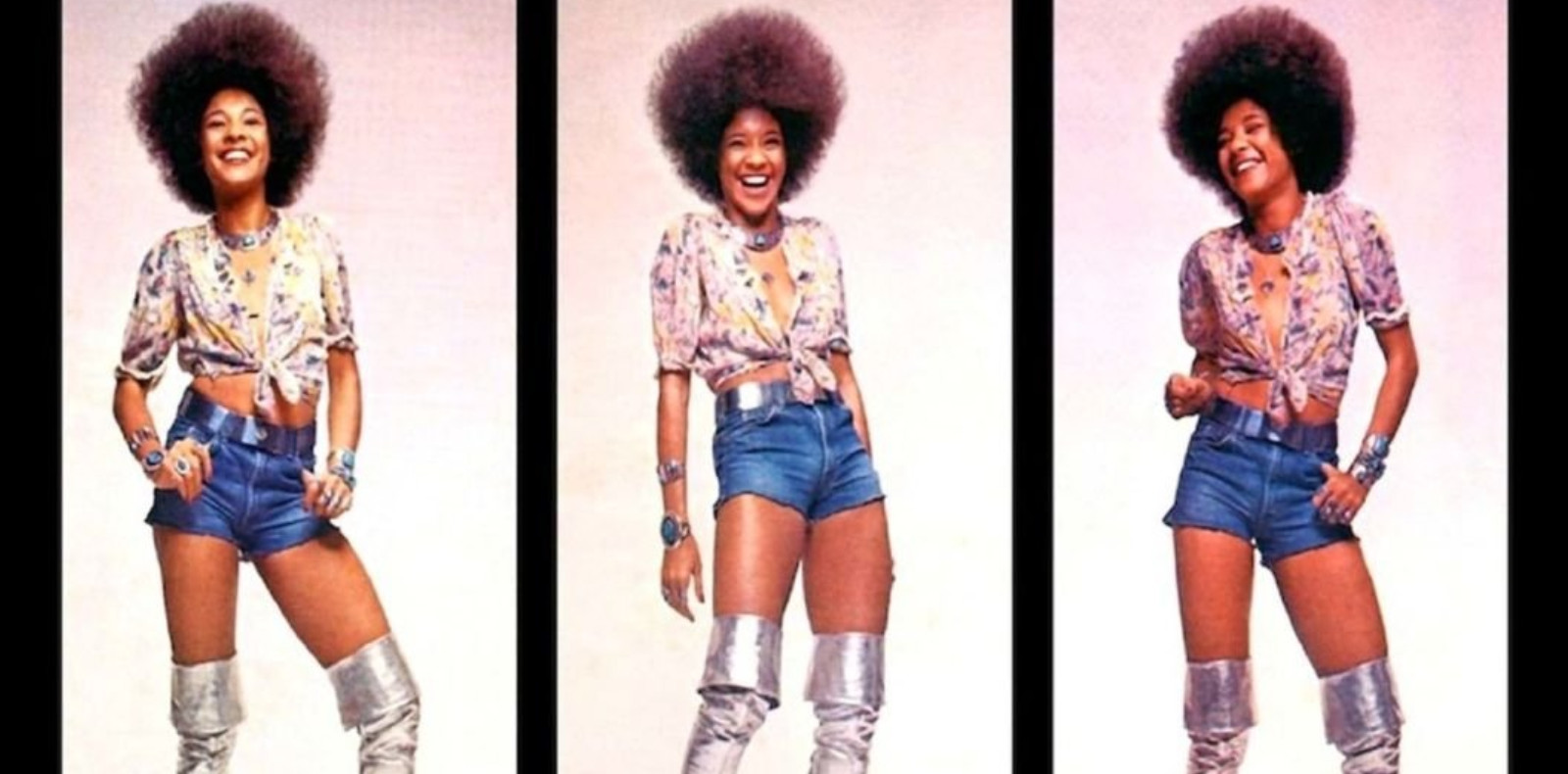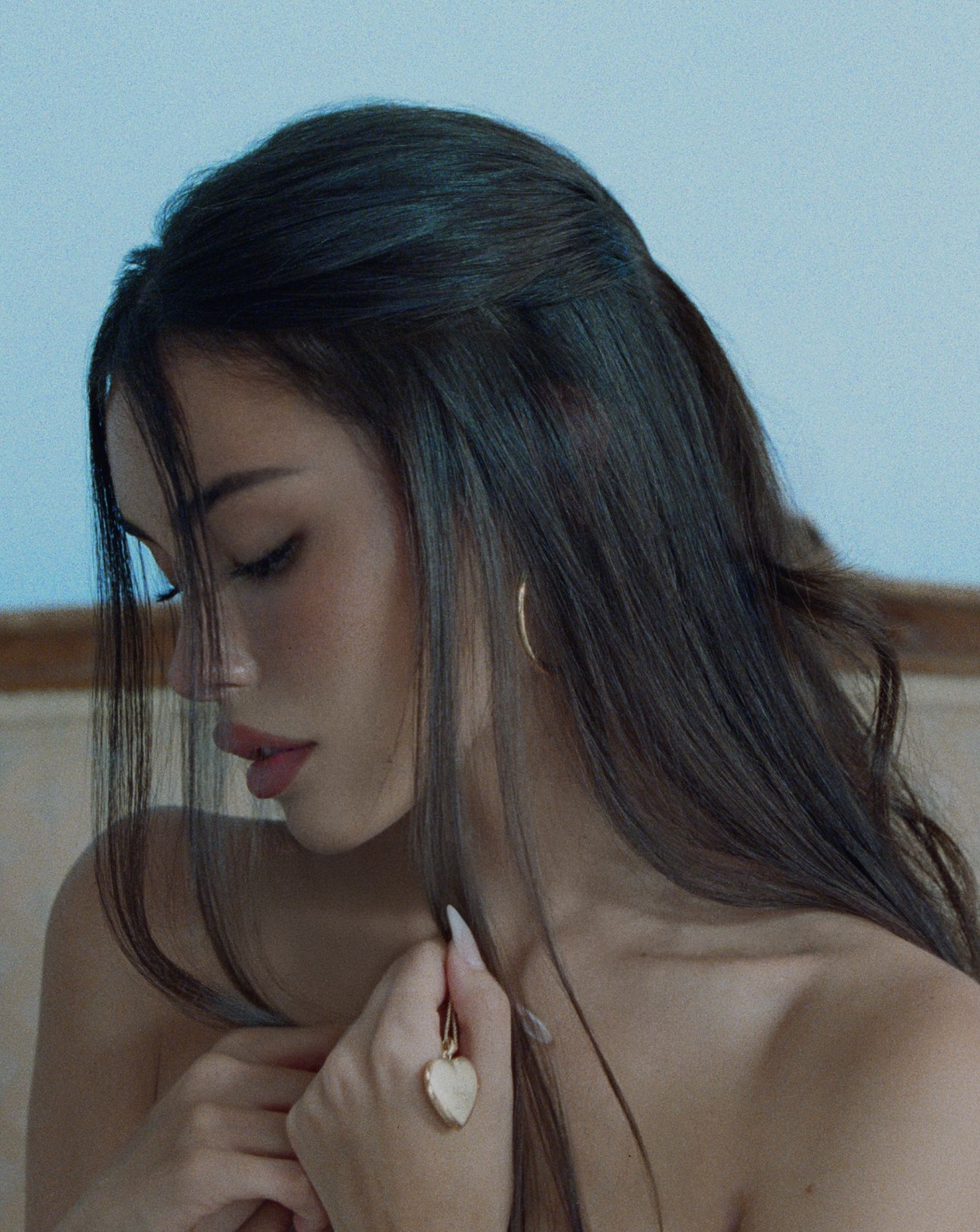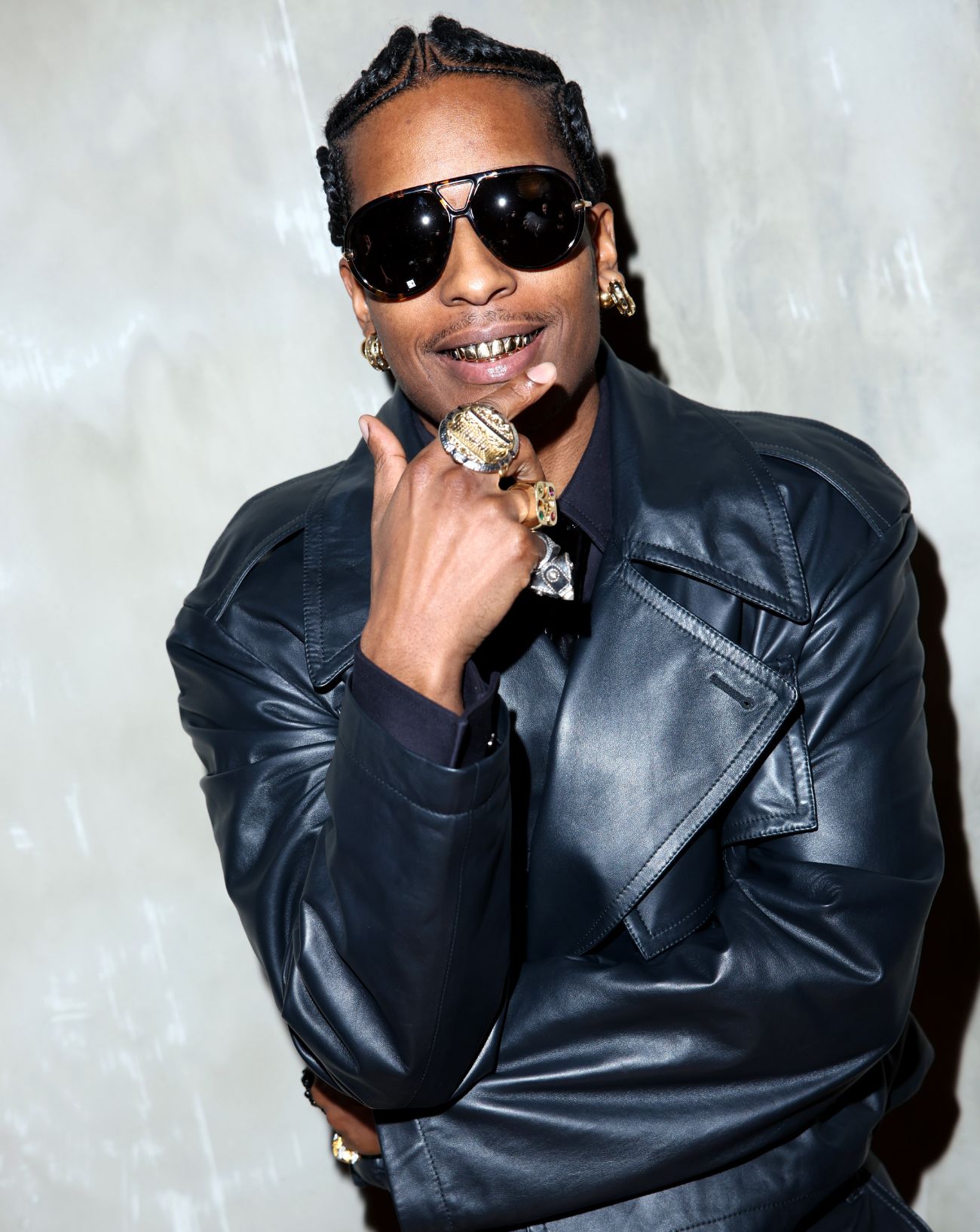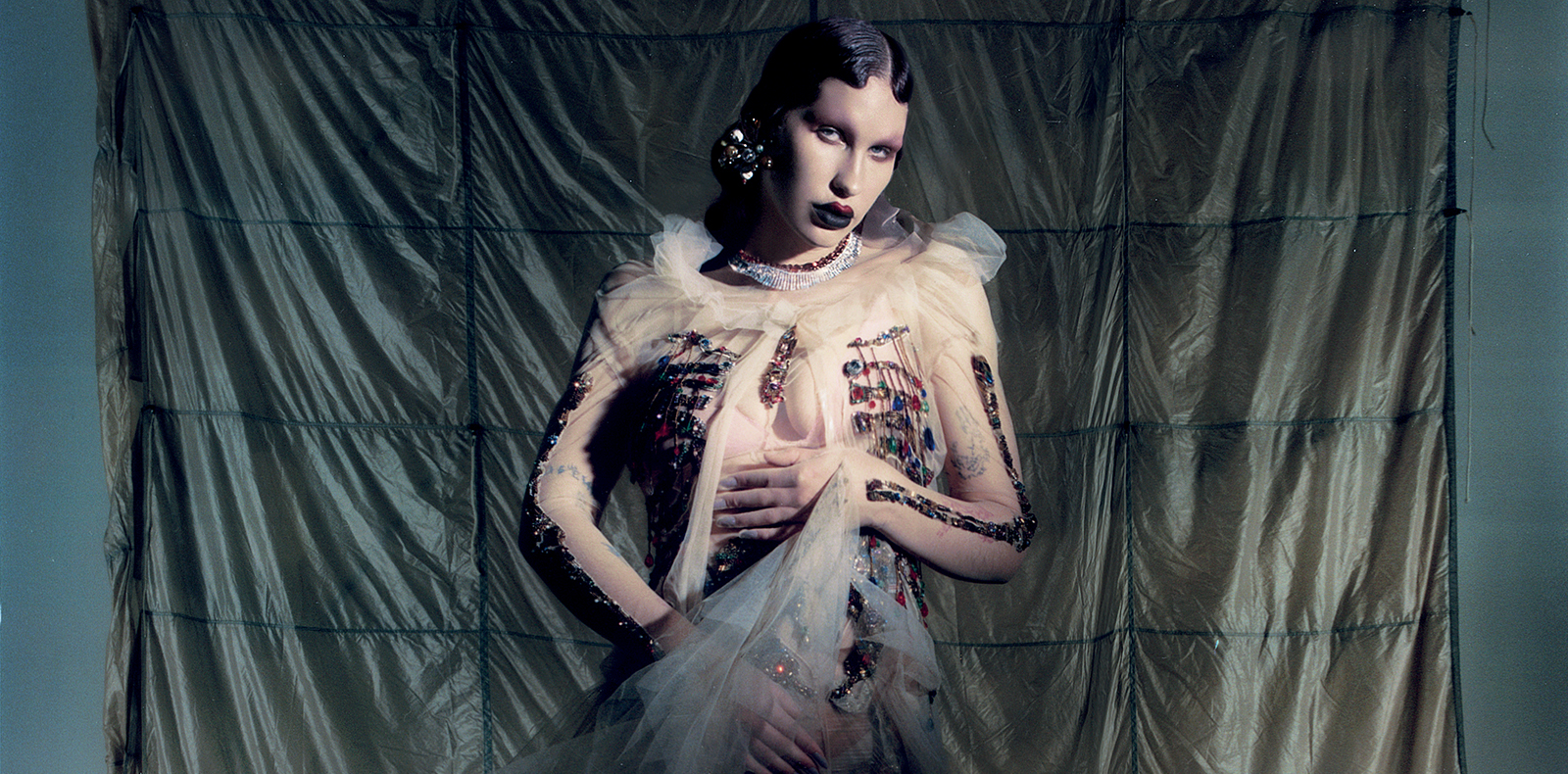
21
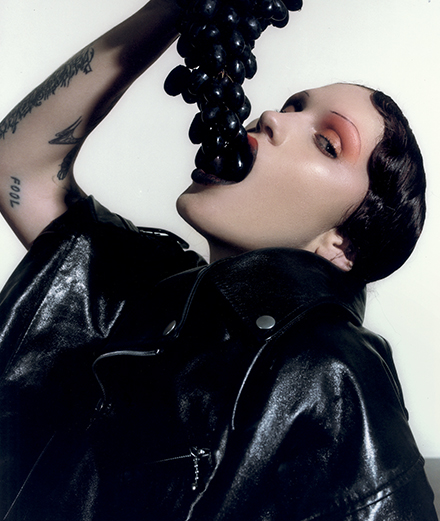
21
Who is Eartheater, electro pop’s most fascinating alien and fashion icon on the rise?
Known as Eartheater, the singer-songwriter Alexandra Drewchin has a visceral relationship with nature, which finds its way into her earthy, ethereal, explosive music. Somewhere between dream pop, psychedelic folk and electro, her songs mix reverie and the tangible world to produce a new phantasmagorical reality. As she just released the deluxe version of her fourth album Trinity where she added new remixes, she’s now working on her sixth album, due out next spring.
Photos by Colin Solal Cardo,
Styling by Lisa Jarvis,
Text by Matthieu Jacquet.
Published on 21 November 2022. Updated on 20 June 2024.
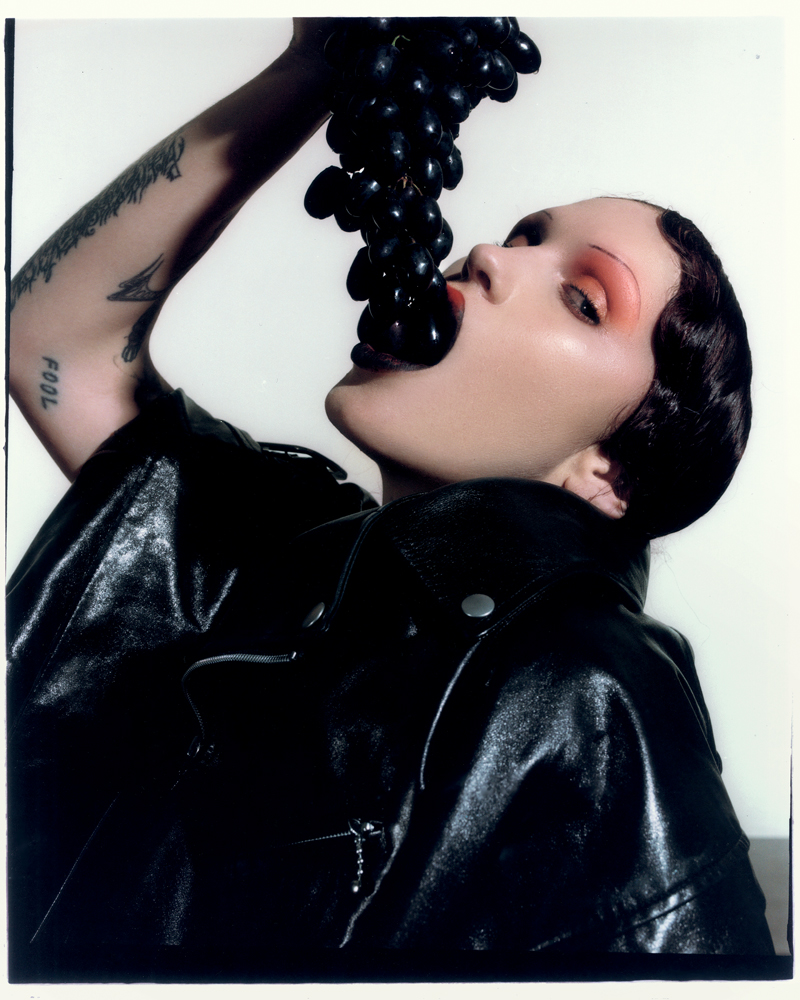
Entering the world of Eartheater, you discover a place that’s not entirely human, one where women grow dragon wings and devil horns, open their mouths to let out silver snails that cover up their naked bodies, or mount majestic stallions to gallop away to adventure, before meeting up around the camp fire to recount their odysseys in crystalline song accompanied by delicate strings. The 33-year-old American, who achieved fame with her last two albums as well as appearances in the world of fashion, already has five studio discs to her credit. “I like to keep the audience on the edge of their seats, so that they never know what to expect before they discover me,” she told Numéro this June in Vincennes, where she was perform- ing at the festival We Love Green. So far, she’s kept her promise, for in both image and music, the New York resident, who has spent the last seven years developing a hybrid sound that mixes ethereal pop, experimental psychedelic folk and incandescent electro pop, has never stopped confounding expectations.
When interviewed, Drewchin talks like one of her songs, her speech full of metaphors, the oneiric and the tangible coming together to form a new reality. At one point she fixates on a cloud whose strange shape fascinates her, reminding her of her own nebulous incarnation in the video to her song Scripture; at another she recounts in vivid terms her phantasmagorical meeting with Madonna in a steam-filled Jacuzzi lit only by the beams of the moon. When we first met, two years ago, she described with wonder the place where she grew up, an isolated Pennsylvania farm entirely cut off from civilization, music and pop entertainment, since there was no TV or computer at home. The young Alexandra spent her days looking after her chickens and her pony, be- ing educated by her parents, and writing poems and singing while strolling through the surrounding countryside, from a magic cave where orchids grew to an enchanted, tree-lined river that made her think of “the elf kingdom in The Lord of the Rings.” At 18, she took her overflowing imagination to New York where she launched a self-taught music career playing guitar. After a few years in a band, she went solo under the pseudonym that reflects her visceral relationship to nature: Eartheater, she says, was inspired by Gabriel García Márquez’s novel One Hundred Years of Solitude, in which a young girl appeases her anxiety by eating soil.
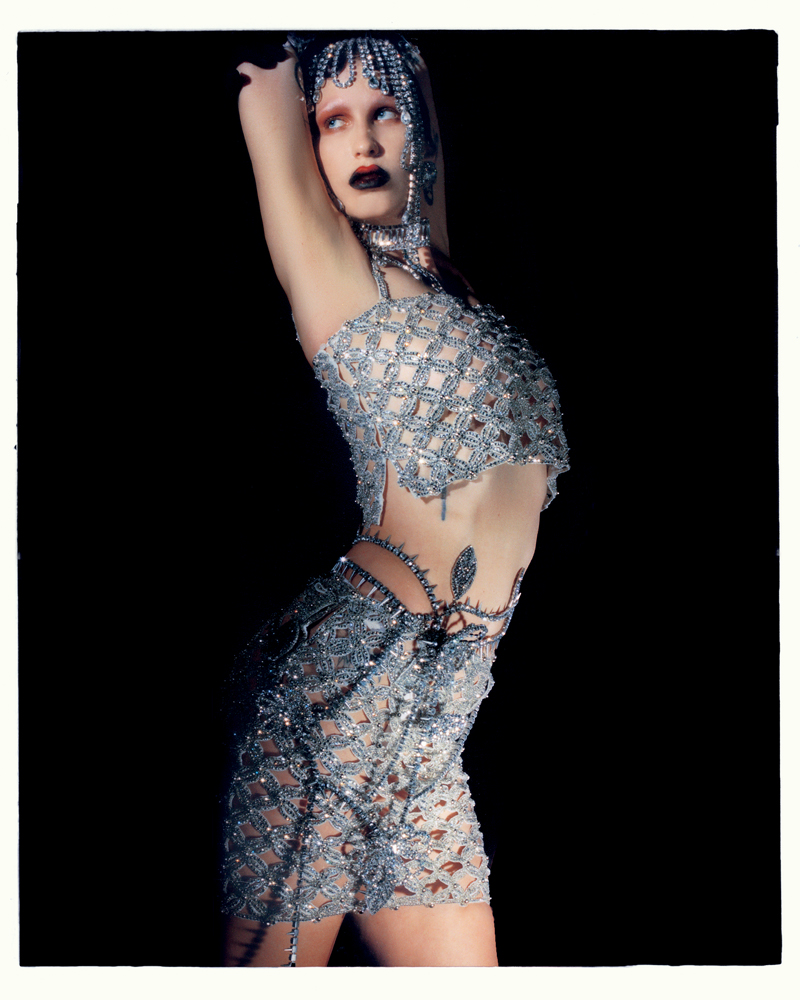
Her music also delicately expresses the fantastical, mystical environment as seen through her alert eyes. Already in her first albums Metalepsis and RIP Chrysalis (both 2015), which was followed by Irisiri (2018), she took the listener on an intimate journey into a mysterious Eden. The velvety rhythms evoke the lap of water, harp and guitar arpeggios conjure up the light and colour of luxuriant vegetation, while grinding violin strings sound like a prancing faun, and Drewchin’s own extreme high notes and polyphonic superimpositions recall the speech of whales as they swim through the oceans. Moreover, she herself describes her music as being like a painting where melodies and instruments are pigments, which she scatters across the canvas before arranging them with her brush. As strange as it is voluptuous, her musical landscape often surprises the ear, sometimes recalling the vocal epics of a Björk or an Imogen Heap, at others the dissonant experiments of a CocoRosie or the fairy folk of a Diane Cluck or a Joanna Newsom.
“There’s a lot of sexuality in what I do, even if it’s not always directly noticeable. It’s a very powerful force that I mobilize when I sing.”
Little by little, Eartheater came out of her chrysalis, particularly on the album Trinity, which she released in 2019 on her own label, Chemical X, founded that same year. Across ten tracks in which she tacked ever closer to electro, hyperpop and even trap, Drewchin put the emphasis on the beat, and for the first time invited outside producers to work with her, seven of them altogether. In sensuous, sonorous meanders, where one track flows into another without interruption, Eartheater unfurls a running metaphor of water in all its states – solid, liquid, gas – to speak of her own desire. “There’s a lot of sexuality in what I do, even if it’s not always directly noticeable,” she declares. “It’s a very powerful force that I mobilize when I sing.”
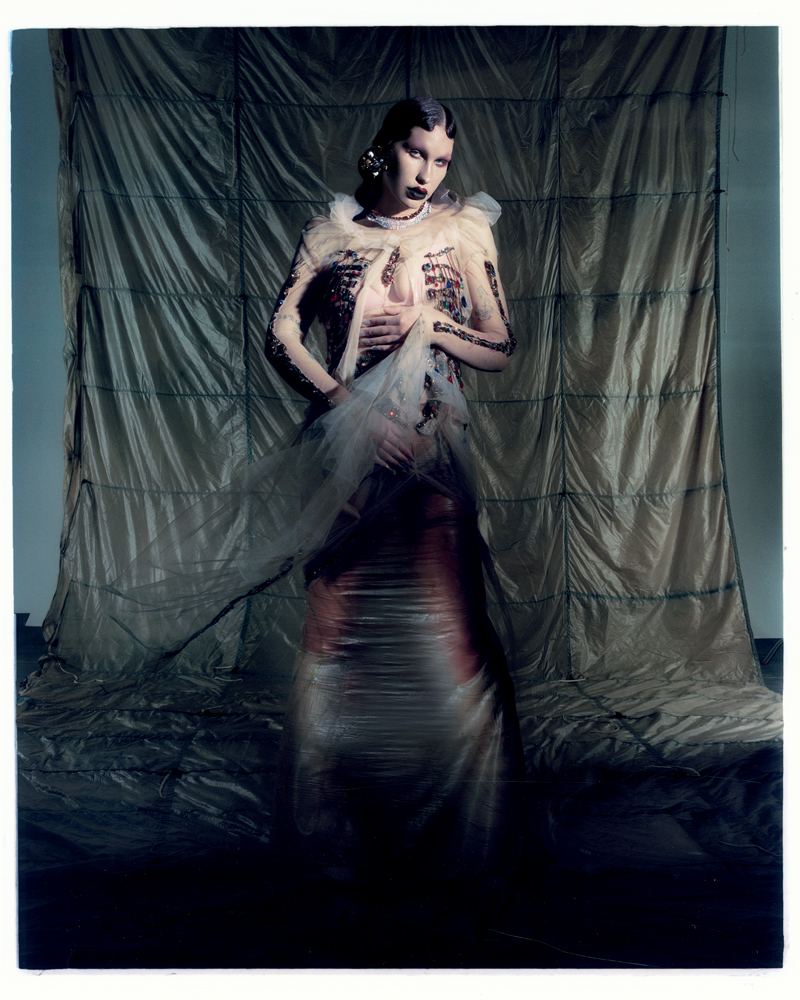
Her comfortable relationship with her body reached its apogee on the cover of her last album, 2020’s Phoenix: Flames Are Dew Upon My Skin. Standing in front of an ardently coloured backdrop, wearing just a pearl corset, she turns her back to the camera to reveal the bat-wings growing from her shoulders, while sparks fly from the ground be- tween her naked legs. Hers is a visual style that hasn’t failed to seduce the fashion world: while Chanel and Proenza Schouler use her music for their runway shows, Mugler and Dion Lee have cast her in their campaigns, channelling her image of a strong, sensual, mysterious woman who keeps total artistic control over her projects – in addition to writing her own words and music, as well as orchestrating all her songs, she has directed several of her own videos. But she’s not averse to collaborations, either, having worked with the singer-producer-DJs Sega Bodega and LSDXOXO, and she will appear on one of the tracks on the new album by Grimes, another alien of electro pop in whose path she has clearly followed. Meanwhile, on her own label, Chemical X, Drewchin recently oversaw the music début of Lolahol, otherwise known as Lourdes Maria Ciccone León, eldest daughter of Madonna, thereby demonstrating her desire to put together a community of artists freed from the constraints of record companies and the music industry.
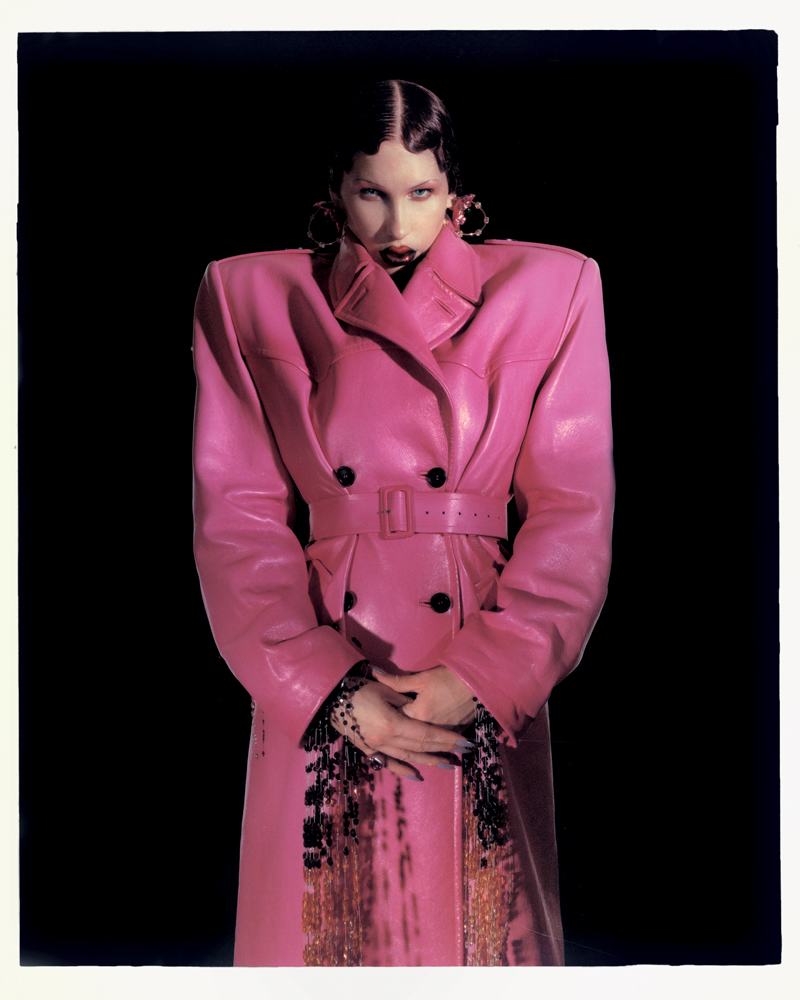
Today, Eartheater seems to have found a balance between city life – the New York underground scene and international tours – and her rural roots, taking time off to write her sixth album, due out in spring 2023. This ambivalence can also be felt in her stage performances: a year ago, she appeared at Paris’s Bourse de commerce in a Givenchy cocktail dress, her auburn hair delicately framing her face, accompanied by her own guitar, a grand piano and a small string ensemble, letting her voice soar in an intimate moment of acoustic poetry; then, at Vincennes this year, she was accompanied only by her DJ, dressed up as an archetypal California bimbo in a blonde wig, giant sunglasses, denim minishorts and a tiny sil- ver-lamé bikini, lighting up the stage with all the electro hits from her discography. But, despite her eclecticism and multiple identities, Eartheater doesn’t do alter egos, for she is a profoundly free and creative artist, who follows her instinct while preserving all her integrity.
Scripture and Mitosis (Chemical X) by Eartheater, available. Trinity (Deluxe) (Chemical X) by Eartheater, available since November 18th, 2022.
